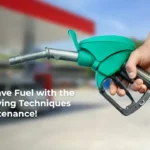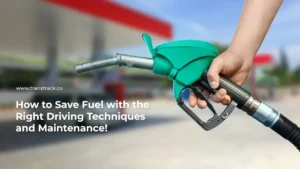Know the Causes and Characteristics of a Damaged Dynamo Starter!
Posted on March 13, 2024 by Nur Wachda Mihmidati

The starter dynamo is one of the vital components in the drive system of a modern car. As the device responsible for turning the engine when it is initially started, the starter dynamo plays a crucial role in maintaining the mobility of your vehicle. However, the starter armature is often overlooked until a nagging problem occurs.
In this article TransTRACK, we will discuss more about the starter armature: how it works, the characteristics of a malfunction, and the importance of regular maintenance. With a better understanding of the dynamo, you’ll be better equipped to identify potential problems and take the necessary preventive measures.
Don’t let a dynamo malfunction hamper your ride. Let’s explore together how we can keep the dynamo functioning optimally, so you can drive safely and without a hitch.
Causes of a faulty car starter dynamo
There are several common causes of damage to car dynamos:
Carbon brush wears out
The carbon brush on the dynamo can wear out with use. If these carbon brushes wear out, the contact between the parts in the dynamo can be disrupted, causing the dynamo to fail to function properly.
Problems with the car battery
A weak or damaged battery can cause problems with the starter dynamo. The dynamo needs electricity from the battery to start the car. If the battery cannot provide enough power, the dynamo will not function properly.
Internal components are damaged
The internal parts of the armature, such as the solenoid or armature, can suffer damage due to wear, corrosion, or other mechanical failures. This can result in the armature being unable to rotate properly or even breaking down completely.
Faulty wiring or connections
Damaged cables or loose connections between the dynamo, battery, or the car’s overall electrical system can disrupt the flow of electricity required to operate the dynamo.
Overload or force when working
If the armature is forced to work too hard, for example when the car is already started and the engine is running, this can cause damage to the armature’s internal components.
To fix problems with the armature, it often requires a thorough check by a trained mechanic and possible replacement of the damaged components.
Characteristics of a faulty car starter dynamo
Here are some common characteristics of a faulty car dynamo:
The appearance of a clunking sound
When the starter armature is having problems, you will often hear a clunking or creaking sound when trying to start the car. This sound may indicate friction or the dynamo’s inability to turn smoothly.
No reaction from the car when it is started
One of the most obvious characteristics of a faulty dynamo is when you try to start the car, but there is no reaction at all when the starter button is pressed or the key is engaged. This indicates that the starter armature fails to drive the engine.
Difficulty starting the car
While the car may eventually start, you may experience unusual difficulties or longer delays than usual when trying to start the engine. This could be caused by the starter armature working inefficiently or functioning abnormally.
Burning odor or excessive heat
If there is a problem with the armature, you can sometimes smell a burning odor coming from the overheating part of the starter armature due to its internal damage.
If you experience one or more of the above characteristics, it is highly recommended to immediately take your car to a trusted repair shop for inspection and repair by trained mechanics. Damage to the dynamo not only disrupts driving comfort, but can also cause more serious problems if not handled properly.
By using TransTRACK’s Vehicle Maintenance System, you can easily manage and monitor the health of your car’s starter armature and other components. With advanced and intuitive features, TransTRACK allows you to:
- Monitor the condition of the armature in real-time.
- Receive automatic notifications if problems are detected with the dynamo or other components.
- Manage routine maintenance and part replacement schedules to ensure your car stays in optimal condition.
- Analyze maintenance history data to identify fault patterns and prevent serious breakdowns in the future.
- Optimize the performance and lifespan of dynamos and other components, saving on long-term maintenance costs.
With TransTRACK, you can have full control over your car maintenance, improve vehicle reliability and avoid unwanted interruptions on the road. Don’t let a broken starter motor interrupt your journey. Switch to TransTRACK now and enjoy the ease of maintaining your car.
Recent Post
Topic :
vehicle enginevehicle maintenance
 Bahasa Indonesia
Bahasa Indonesia









